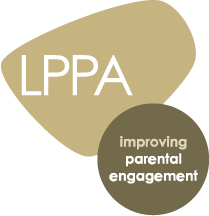I spoke to one parent about their struggle to find the right primary school for their child on the autism spectrum.

As a secondary SENCO, I am always very humbled by when talking to primary colleagues - especially parents and carers. I try to gather as much information as I can during conversations on transition and events at which I am fortunate enough to speak.
Below is a summary of a conversation I had with a parent recently. I asked her about the process of choosing a primary school for her son, who is diagnosed with autism. Hopefully her viewpoint resonates with SENCOs as well as with other parents and carers.
How did you go choosing the school that was best for your son?
‘We started thinking about a school for our son approximately 18 months before he was due to start. Our son was diagnosed with autistic spectrum condition (ASC) at the age of three. We obtained a Statement of SEND seven months before he started school.
Our son has significant language, social and sensory difficulties. Before naming a school in the yet-to-be granted Statement, I visited nine schools in our local area.
It was obvious from the outset that as parents, you have to rely on your own judgement when it comes to picking a school. Although I had a sense of what I should be looking for, the job was difficult for several reasons.’
What were your thoughts on the differences between mainstream and special schools?
‘It isn’t always clear whether your child would be best suited for mainstream education or special school. At this stage I didn’t know the legal position of the parent in terms of the presumptive right that our child should be in mainstream. I know this now.
I have often wondered how 'mainstream' a child can be if they cannot fully engage with their peers, but at the same time I worry that engagement might not come so easily at a special school.
If there are communication difficulties, I believe children need to be helped individually in whatever setting – we cannot presume that difficulties disappear after placement in a particular type of school.
We cannot presume that difficulties disappear after placement in a particular type of school
In steering our recent EHCP process, it is clear to me that the choice of school is important, but it cannot make up for a poor EHCP.
Everybody has a responsibility to ensure that the EHCP is as good as it can be, but someone has to lead the process. I believe parents, in most cases, need to be supported to do this job.’
Did you feel there was enough information available to help you with your choice?
‘There is no teacher or officer at the local authority who will make a recommendation of a school. It doesn’t seem to sit within any particular job description. You have to work it out for yourself.
Our local authority had parent partnership officers, one of whom I spoke to prior to obtaining the Statement. After asking her a few questions, it became apparent that I would need to drive the Statement process. She simply did not know enough.
However, she was very quick to offer her services in visiting potential schools with me. It felt more like a suggestion for a day out than an offer of materially beneficial advice.
Parents are often described as "the experts on their child". Welcome words, but we don’t always know how to link our child’s requirements to an individual school. This is particularly true for children entering at Reception class and where the child is the oldest sibling. Parents only have their own recollections of school, which are very out of date.’
Is there a gap in advice for parents?
‘Six months after our son started school, our paediatrician confessed that, in her view, ‘it was 50/50 whether he would manage at mainstream’. This was the first time she had commented on schooling.
After ASC diagnosis came the NAS Early Bird course, which from my recollection did not offer any advice or pointers on education. Other parents on the course had older children and a number of education-related issues that couldn’t be answered by the medical professionals who were delivering the course.
In some cases, the issue of where or how a child should be schooled was the parents’ most pressing issue.’
Is it important to visit a range of schools?
‘Professionals often advise that we visit schools ourselves. In the absence of any specialist advice on the subject parents look at different schools themselves anyway.
If you have a child with additional needs, you feel that you are going ‘cap in hand’ to headteachers. You are on the back foot immediately because you almost feel like the school would be doing you a favour to take your child.
However, I think visiting a range of schools gives you an idea of what they are like.’
What happens when the local authorities don’t agree about what appropriate provision looks like?
'It seems local authorities can’t decide what is the best education for children with additional needs. Some have autism units attached to primary schools. Others are geared for profoundly disabled children only.
Some areas have autism special schools, while teaching staff in some mainstream schools will complain informally about the difficulty in accommodating children with SEN.
Everybody has a responsibility to ensure that the EHCP is as good as it can be, but someone has to lead the process
There are also issues about whether it’s easy or otherwise to obtain a school place in an out-of-county area.’
How important is a school’s experience in providing for autism/SEND?
‘There is another dilemma: do you choose one that has lots of experience with children on the spectrum? How much support and training will the staff receive?
If your child is one of a number of pupils with SEND in a school, will they benefit from a more experienced group of staff, or are there benefits to choosing a school with no significant experience of autism but some willing and enthusiastic staff?
Also, the amount of information a school puts on its website about SEND doesn’t always reflect the reality. Some will choose to appear reticent about being known as good for children with SEND because of the financial implications. This worsens the position for parents when they are looking for a school.
You can have the best facilities and teaching assistants in the world, but if the culture and the leadership is not right in the school then it will be very had to develop good ways of working
In the absence of any proper system for guiding parents towards a shortlist of schools, the most important thing I learned from visiting schools is to have confidence in the headteacher and the SENCO.
You can have the best facilities and teaching assistants in the world, but if the culture and the leadership is not right in the school then it will be very had to develop good ways of working.
The most important thing I learned from visiting schools is to have confidence in the headteacher and the SENCO
We were keen to be involved with a school that really includes parents as well as the child. Our school didn’t have loads of autism experience but they were willing to learn, positive and professional.
I would be interested to know if the other schools’ attitude would have been different had we lived in their local catchment area.'
'We visited nine schools in total before I made a decision. The disparity between them was striking.'
Do you think the current system is adversarial?
‘Because there is no defined system for matching children with SEND up against schools – and I am sure you could fashion an argument for this being either a good or a bad thing – there is really is no alternative but to visit schools yourself.
It would be nice to have the luxury of a “safe space” where you could talk about schools, your child’s requirements, the local authority and your individual aims. I suppose that the parent partnership people are meant to provide that safe space. But in reality, you need quality advice/support.
The amount of information a school puts on its website about SEND doesn’t always reflect the reality
There is a somewhat adversarial approach built into the SEND system: parents and schools making a case for support rather than the local authority saying” What can we do for this child?” It is this factor that means parents end up talking about needing a ‘safe space’ to talk the issues through.’
I concluded the two most important things I needed were:
All in all, we were lucky that our local school was such a welcoming place.
This is an interview with a parent of a child in England, who has requested anonymity.
 Accrediting partnerships
Accrediting partnershipsThe Leading Parent Partnership Award gives schools a coherent framework to deliver effective parental engagement from early years to post-16.
To find out more, visit the AwardPlace website.